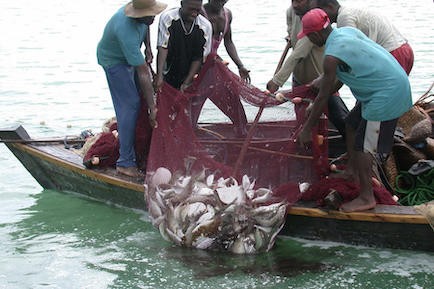The Fisheries and Aquaculture Bill presented to Parliament proposes harsh penalties against persons involved in the illegal fishing trade.
The bill if passed into law proposes that persons who catch undersize fish will be liable to seven years imprisonment or a fine of shs200 million. This is one of the measures to address destructive fishing practices, illicit fish trade and invasion of water bodies by aquatic weeds.
Those convicted of using explosives, fire-arms or any device capable of producing poison to catch fish will be imprisoned for eight years without an option of a fine.
The bill laid for first reading by the Government Chief Whip, Hon Ruth Nankabirwa will also see persons who use poison or any act that affects fish spawning grounds including aquatic plants or animals in fishing waters and those who place pollutants into water bodies, face a five-year jail term on conviction or a fine of shs200 million or both.
The bill seeks to consolidate and reform the law relating to the management of fisheries products and aquaculture due to a number of challenges and emerging issues in the regulation and management of the sector which are not addressed.
The bill also proposes penalties for unlawful seizure of prohibited fishing gear or vessels, counterfeit fishing licenses, impersonating fisheries officers, fisheries officers soliciting bribes and others. Punishment for these offenses ranges from imprisonment for one to 10 years or payment of a fine between shs60 to 200 million. The current law provides for a general penalty of a jail term not exceeding two years for anyone who contravenes its provisions.
During the Law Revision of 2000, the Country’s laws were reorganized and the Fish and Crocodile Act became the Fish Act, which was further amended in 2011 to provide for the establishment of the Fisheries Fund and to permit the retention and use of fees received by the Chief Fisheries Officer from the issuance of licences, permits and other activities for development and management of the sector.
However, the government said the amendments were not comprehensive enough to fully address all challenges facing the fisheries sector because they only focused on licences, the introduction of currency points and retention of funds.
Now, the bill is proposing the licensing and registration of fishing vessels and fishers, control and regulation of all fisheries and aquaculture production activities and practices, methods of fishing and fishing gear, establishment and regulation of lake management organizations and gazetting of landing sites, provide for fish breeding and regulation of fish feeds and others.
The government also proposes the establishment of a Fisheries and Aquaculture Technical Committee which will ensure that fisheries resources are managed and also advise the Minister on effective planning, financing and coordination of the sector. The Committee is proposed to serve under the Directorate of Fisheries Resources.
The Speaker, Rebecca Kadaga referred the Bill to the Agriculture Committee for consideration.




